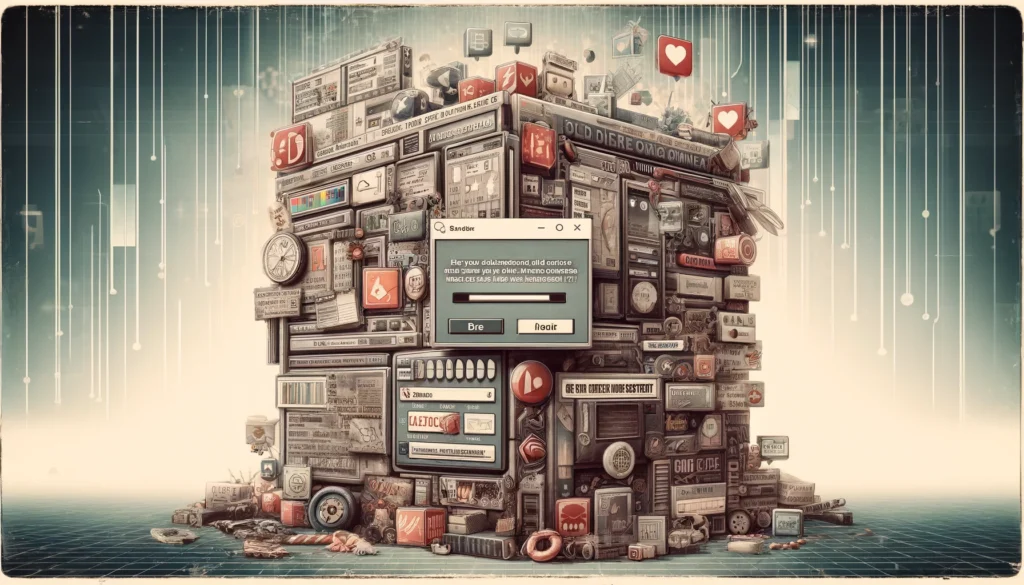- By quade
- 4 April 2024
The Shaky Future of Traditional Content Management Systems
In our age of rapid technological developments, there have been alarm raised in many industries as new technology threaten the future of these markets. While much of the attention focuses on the employment side of things, their effects on the industries overall are worth exploring.
In the modern age of digital media, traditional content management systems are now under threat as their existing systems might no longer be capable of coping with the challenges presented.
What Are Traditional Content Management Systems?
Take traditional content management systems for example. These are the software that businesses and individuals use to manage the content they’ve created. In particular, they are used in web development, providing easy methods for someone to build a website without knowing how to code.
The best and most popular example people use for traditional content management systems is WordPress. When you use WordPress, all you need to do is create the content itself as there is already a template for the website laid out for you. With all the data stored on their website, you just need to write the works.
This type of service has become so popular that it has now extended to other mediums such as document management.
Today many businesses rely on traditional content management systems to post their works, but there is reason to believe that will change soon.
The State of Traditional Content Management Systems

Although a massive industry, there seems to be discontent amongst those who use CMS in their business as more voices now claim that many of these platforms provide inferior services.
The business reporter says that as many as 84% of CMS leaders believe that the current traditional content management systems setup is out of date and is holding back the industry from reaching its full potential. The issues mentioned are maintaining custom middleware, corrupted data, and problems integrating their system.
Another issue mentioned is the skill requirements of these services. CMS contains a host of complex features that require significant technical expertise, making it difficult for less experienced employees to use.
Meanwhile, the need for content continues to grow and these challenges present a major bottleneck that prevents true innovation from improving the industry.
The Potential of Content Federation

One solution promised was making it easier for content and data to be exposed. Having this be made easier to access could increase revenue as more people will use traditional content management systems while lowering costs.
Without this bloat, the CMS allows organizations to explore more innovations faster. This interconnected approach provides more flexibility as it reduces the need to build, host, and secure the performance of custom middleware. This approach also means easier adoption to meet new challenges based on the user experience.
With the freedom to act, companies can future-proof their content strategy by leveraging all the available data and using it to build their website.
Path to Sucess
While these traditional content management systems were effective decades ago, the industry has changed and with them, the needs of the customer. The types and variety of contnet has increased as have the number of devices. With these changes, it has now become time for the industry to modernize as well.
Many businesses are now pushing to dressing this issue as traditional content management systems now seem inadequate to their needs. With this federated approach, some believe that this is the future for the CMS industry.
The main solution continues to be the federated approach which can combine all data and provide easy acess through headless CMS. This can hopefully clear up bottlenecks and lead the way to rapid customer expectations at lower costs.
At geniusOS, we always follow the latest trends and look to keep our systems up to date and the state of CMS is no exception. We will continue to study the potential of this federated approach and see if it can be integrated into our tools. In the meantime, if you want to learn about our services, you can contact us here.



